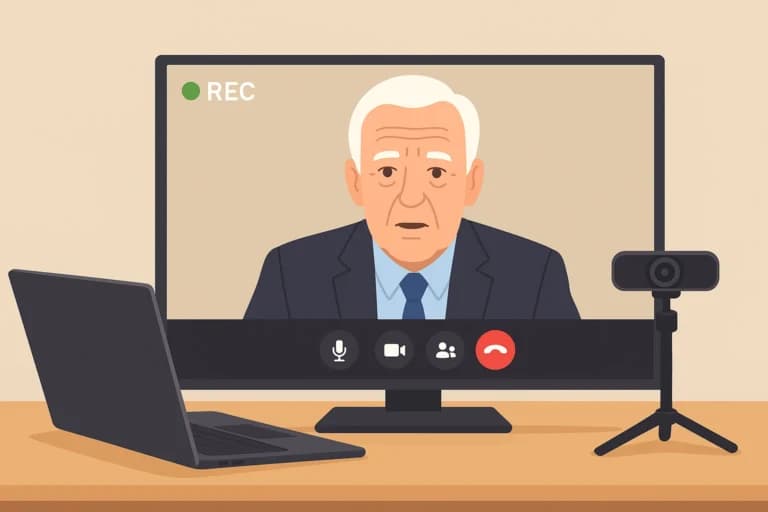In a significant ruling, the Delhi High Court has permitted the Central Bureau of Investigation (CBI) to record the testimony of American national C. Edmonds Allen via video conferencing from the Indian Consulate in New York. The order, delivered by Justice Sanjeev Narula on October 28, 2025, set aside a lower court’s decision that had rejected CBI’s plea to examine the witness remotely in a sensitive case under the Official Secrets Act (OSA), 1923.
Background
The case dates back to 2012, when the CBI registered an FIR under the Section 3 of the Official Secrets Act, 1923 and Section 120-B of the Indian Penal Code following a complaint from the Ministry of Defence. The investigation accused businessman Abhishek Verma and his associate Anca Maria Neacsu of obtaining and transmitting classified defence information to unauthorised persons, including Mr. Allen.
Read Also:- Delhi High Court Upholds DGGI’s Power to Attach Bank Accounts Under Section 83 of the CGST Act
Mr. Allen, a U.S.-based businessman, had written to India’s Defence Minister in June 2012, enclosing documents that allegedly contained sensitive material. The Ministry of Defence later confirmed that several of these were classified. The CBI treated Allen as a key witness — designated PW-46 — and sought his deposition through video conferencing, given his advanced age (79 years), medical conditions, and security concerns.
However, in April 2023, the Special Judge (Prevention of Corruption Act) at Rouse Avenue Court denied CBI’s request, citing risks of national security breaches if classified documents were transmitted overseas.
CBI’s Arguments
Special Public Prosecutor Rajesh Kumar argued that the lower court had misread the law. “There is no prohibition in the Official Secrets Act against recording evidence through video link, especially when proceedings can be held in camera,” he said. He pointed out that the same witness had earlier been allowed to testify via video in another corruption case linked to Verma, a decision later left undisturbed by the Supreme Court.
The CBI contended that Mr. Allen’s testimony was crucial to prove how the sensitive documents reached him and to establish the electronic chain of custody. The agency further argued that denying video testimony could result in “irretrievable loss of vital evidence” given the witness’s health condition.
Defence’s Stand
Senior Advocate Maninder Singh, appearing for Verma, countered that the petition was “misconceived” and “factually suppressed.” He said Allen was not a neutral witness but an interested party, being a director of a company linked to the case. The defence maintained that under Rule 5.3.11 of the Delhi High Court Video Conferencing Rules (2020), the accused’s consent is mandatory for any witness examination through video, and since Verma and others had refused consent, the CBI’s plea was rightly rejected.
The defence also warned that transmitting classified material outside India, even for witness familiarisation, could violate Section 14 of the Official Secrets Act (OSA), which mandates secrecy and in-camera trials to protect national interest.
Court’s Observations
Justice Narula observed that while the trial court was correct in noting its lack of power to relax the rule requiring the accused’s consent, it had “converted a safeguard into a barrier.” The judge clarified that the purpose of the consent rule is to ensure fairness, not to grant an absolute veto to the defence.
Citing the Supreme Court’s ruling in State of Maharashtra v. Dr. Praful B. Desai (2003), the bench reaffirmed that video-conferencing evidence is legally valid and satisfies the right to cross-examination under the Code of Criminal Procedure. “The correct judicial response is regulation, not prohibition,” the Court noted, emphasising that secrecy could be preserved through strict procedural safeguards.
The bench further said that the OSA does not prohibit video evidence; it only insists that trials be conducted in a manner that prevents public exposure of classified information. “The apprehension of leakage is being unduly magnified,” the Court observed, adding that risk management, not fear, must guide judicial decisions in such matters.
The Decision
Setting aside the April 2023 order, Justice Narula allowed the CBI’s plea under Section 482 CrPC and directed the trial court to record Allen’s testimony via secure video link from the Indian Consulate in New York.
To ensure confidentiality, the High Court imposed several safeguards:
- The proceedings will be held in camera as per Section 14 of the OSA.
- Original classified documents will remain at the trial court in India and may only be displayed on-screen in a view-only, watermarked mode.
- Any certified copies, if indispensable, must be sanitised and routed through official diplomatic channels.
- The entire session will use an end-to-end encrypted platform with no recording or screenshots permitted.
The bench concluded by stating that the arrangement “strikes the right balance between the administration of justice and protection of national security.”
The court directed coordination between the Rouse Avenue Court and the Indian Consulate to fix convenient dates, considering the time difference and the witness’s health.
With that, the petition was allowed.
Case Title: Central Bureau of Investigation vs Abhishek Verma & Ors.
Case Number: CRL.M.C. 4711/2023 & CRL.M.A. 28694-28695/2023














